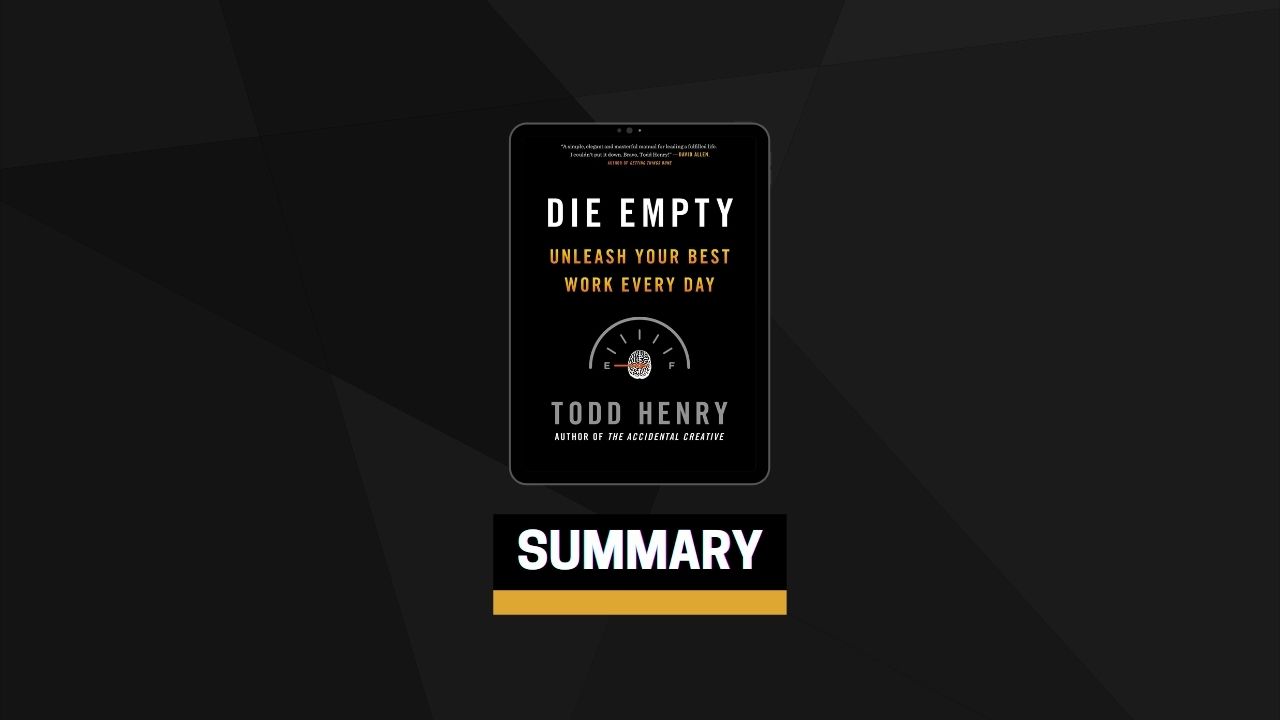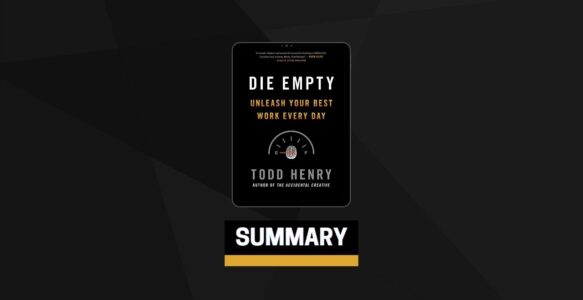Your Contribution
Principle: Your body of work should reflect what’s important to you.
When you’re gone, your work will stand as the single biggest testament to who you were and what you believed. By “your work,” I don’t just mean your occupation, but any way in which you contribute value to the world using your available resources. This, of course, includes every task you do and project you engage in, but also every time you encourage someone else or contribute to a relationship, every instance in which you make an effort to grow your skills or develop your mind, or every time you go the extra mile even though you are exhausted. Your body of work comprises the sum total of where you choose to place your limited focus, assets, time, and energy.
The Siren Song of Mediocrity
Principle: Mediocrity doesn’t just happen suddenly; it develops slowly over time.
When we start our career or an exciting project, everything is new. We throw ourselves into the work with full vigor, because we know that we need to prove our worth to our manager or clients. In some ways, it’s like a new dating relationship. We put our best foot forward because we want to win the respect and approval of our potential partner. However, over time familiarity sets in and some of the aspects that once seemed new and exciting become predictable and mundane. The tasks we perform no longer stretch us, and some of them we can even do on autopilot. We’ve lost the thrill of the challenge.
This dynamic is not only present early in our career. It’s a cycle that we will go through many times as we take a new job, assume new responsibilities, and settle in for the ride.
We quickly grow stagnant, relying on our existing skills to perform our work. These skills may be sufficient, and, depending on how innately talented we are, may even earn us a great amount of respect in our industry, but deep down we know that we’re not doing our best work. We know that we’re coasting. We’ve succumbed to mediocrity.
Define Your Battles
Principle: To counter aimlessness, you must define your battles wisely, and build your life around winning them.
No army would charge into battle without understanding the battlefront. It would be mass suicide. Yet, many of us do this daily with our work. While most people have a good sense of the tasks and projects they’re accountable for, they haven’t taken the time to consider what they really care about, and how it will find form in their work. They are lost in the fog of war.
Priorities are difficult. When you choose one thing to focus on, you automatically choose not to focus on others. This is why some people fall into aimlessness: they don’t like the discomfort of having to say no to very good things that aren’t the most important things. They’d rather be mediocre at a lot of things than take a real swing at things they care about and risk failure.
Be Fiercely Curious
Principle: To prevent boredom from dulling your senses, you must approach your work with a curious mind-set.
Busily Bored are cranking through a lot of work, and they’re doing what they have to do to meet their expectations, but if you looked under the hood you’d see that they’re bored silly. They no longer find their work stimulating, and they’re kind of going through the motions.
They’re not stretching their mind.
They’re not acknowledging their deeper questions.
They’re not trying new things.
They’re living with unchecked, limiting assumptions.
The saddest part is that when confronted with a topic other than work, they light up with enthusiasm and delight. If you get them talking about something they’re naturally interested in, they’ll go on in remarkable detail for several minutes. The problem isn’t that they lack the capacity for wonder and interest; it’s that they can’t seem to apply the same level of curiosity to their work.
The solution to the dilemma? Reclaim curiosity by embracing an engagement mind-set rather than an entertainment mind-set. This means dedicating yourself to the pursuit of new and better questions, attuning your mind to dive deeply into important problems, and questioning the assumptions that sometimes limit fresh new perspectives.
Step Out of Your Comfort Zone
Principle: To make a valuable contribution, you have to get uncomfortable and embrace lifelong growth and skill development.
Imagine for a moment that you will have a guest accompanying you throughout your day tomorrow. This person’s task will be to follow you around from the moment you wake up until the moment you fall asleep. They will take copious notes about your schedule, how you interact with your family and friends, how you engage in your tasks and projects, and your mind-set through it all. Once the day is over, this person will spend the next few days processing their observations, draw conclusions about your motivations, and compile their notes into a book about you that will stand as the definitive record of your life and work.
How would you act differently tomorrow if you knew that your actions and attitude on that one day were going to be a permanent testament to your life? If you’re like many people, you would probably get up a little earlier, pay extra attention to your family and the barista at Starbucks, be fully vested in every meeting, be meticulous in every task, call up an old friend for lunch, reconcile with an alienated colleague, and generally wrap up your loose ends.
Know Yourself
Principle: Knowing yourself will help you counter self-delusion and pursue the unique contribution you alone are capable of making.
The stories we believe about how the world works often play a critical role in helping us interpret the meaning of events. They provide a framework—a worldview—through which we filter our experiences. As such, the stories we tell ourselves—and tell about ourselves—can be either motivating, contributive forces or limiting, destructive forces as we strive to unleash our best work. It’s important that we gain an understanding of not only what those deeply held beliefs are, but also how they might be affecting our daily activity. Doing so, and then mapping our activity around that self-knowledge, is one of the keys to sustained success.
Be Confidently Adaptable
Principle: Confidence and adaptability prevent an inflated ego from stalling progress on your most important work.
A person with an inflated ego doesn’t necessarily display the stereotypical bombast, marauding through the office demanding attention like a diva. Contrary to this narcissistic stereotype, people with inflated egos are often comfortable in the shadows. For them, it’s not always about stepping into the spotlight. Rather, it’s about a deep conviction that they are right (regardless of what others think), and the accompanying desire to prove it by any means. They will often do this by manipulating the conversation and bending it toward them, or by strategically withholding their efforts when they don’t feel like they are being appropriately recognized. While a deep confidence is typically necessary for success, an overinflated ego can cause you to forfeit your best work if you do not feel that you are being appropriately recognized for your efforts.
The key counterpoint to ego is adaptability. This means cultivating the willingness to confidently bend to your environment while still maintaining a strong sense of self and purpose. To maintain traction and prevent ego from stalling your progress, you must develop the ability to subvert your egocentric needs for the sake of the work, which in the end—as you will see—is often the best thing for you as well.
Find Your Voice
Principle: Find your voice and conquer the fear of failure by taking small, calculated risks each day.
There is more happening in your mind than is apparent on the surface. Something you experience may cause a flash of intuition, but this burst of insight will quickly fade if you do nothing with it. You need to pay attention to these moments of inspiration and follow—at least mentally—where they lead, even if it seems impractical in the moment. This doesn’t mean being reckless with your attention and following every whim, but being willing to at least suspend your assumptions long enough to vet the merits of an intuitive ping.
What do you already suspect to be true, but are ignoring because it seems impractical on the surface? You will never do your best work until you learn to hone and trust your instincts, then develop the courage to take small steps in the right direction.
Stay Connected
Principle: Establishing genuine connections with others will prevent guardedness from infecting your life.
We are not wired for isolation. From the earliest moments of our lives, we grow, learn, and come to understand our place in the world through our interactions with others. We need other people to help us stay aligned and to bring out the best in us. But relationships can be uncomfortable and challenging at times. It’s easy to slip into guardedness and close ourselves off from the world when dealing with the messiness involved in navigating expectations, misunderstandings, and collaborative disagreements. This is especially true when we are busy or feel like we don’t have the time or emotional bandwidth to deal with the complexity of relationships.
However, closing ourselves off to others—especially in hectic times—is the worst thing we can do. When we disconnect or become guarded, we reduce the potential for serendipitous insights and connections that often come through unexpected interactions with others, and we also limit our own ability to stretch outside our relational comfort zone, which is the very thing that often leads to the discovery of new insights about our abilities and preferences.


